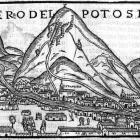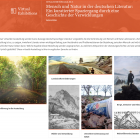"Indigenous Peoples' Concerns About Loss of Forest Knowledge: Implications for Forest Management"
The authors use the case study approach to provide insights into how an indigenous population, the Baka in Cameroon, face barriers to participation in policy making, hindering recognition of rights to traditional forestland.











